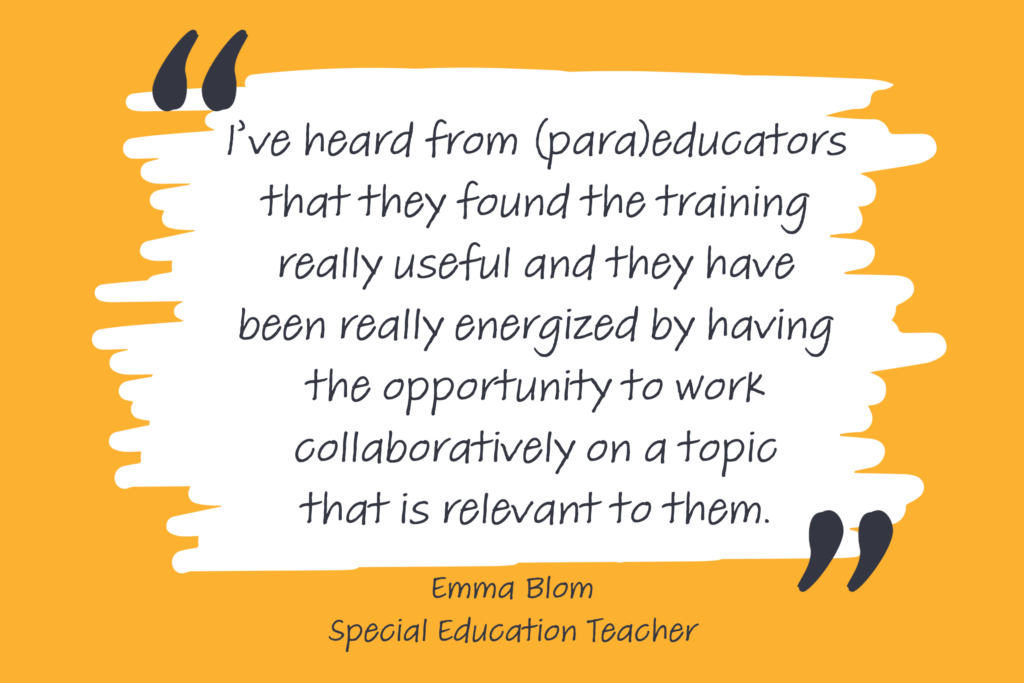Paraeducators play a crucial role in our schools — a unique role with many facets.
Some of the duties may include acting as a translator “to enhance the participation of English language learners or students with disabilities,” instructional support duties, behavioral support, technical support for computers, providing personal care, performing clerical duties or lunch room support, according to the Alaska Department of Education.
The duties of the paraeducator differ from and complement those of the teachers they work alongside, with the goal of improving educational outcomes for all students.
Dr. Jackie Wood, in her role as director of professional learning at SERRC – Alaska’s Educational Resource Center, saw that paraeducators would often be included in professional learning designed for teachers, and wanted to enhance how paraeducators could apply this knowledge to their practice. Having already developed training for aspiring paraeducators with the adult education team, the next step was to develop a professional learning curriculum for the continuing education and growth of practicing paraeducators.
“Many districts have in-service days where teaching staff are getting training that may not be tailored for paraeducators. The districts we’ve been working with this year have been using this in-service time for training designed specifically for paraeducators,” said Wood.
During her tenure as director of professional learning, Wood has worked to create more flexible, customizable training, both in content and delivery.
Some districts have requested a focus on literacy or behavior. Some have held full day in-person training, while others have opted for one-hour sessions over the course of a year during Professional Learning Community time.
However the training is customized, the feedback has been overwhelmingly positive. Wood’s own observation is that paraeducators “feel seen and valued.”
One training participant had this to say: “…I found these trainings to be so fulfilling and exactly what I was wanting to get from the experience. They took the time to answer all of our questions and were thoughtful in their responses. I am grateful for the experience!”
Following up with staff at Denali Borough School District provided insight to the impact of the training in practice.

“I’ve heard from (para)educators that they found the training really useful and they have been really energized by having the opportunity to work collaboratively on a topic that is relevant to them,” said Emma Blom, a special education teacher at Tri-Valley School. “They always do great work… but I have noticed more conversations about best practices and more collaboration happening.”
Maria Cordova, also a special education teacher at Tri-Valley School, agreed and shared an example: “The cultural standards helped two (para)educators to understand their students and find ways to engage them in learning through the local culture.”
She also reports observing a more positive outlook, more sharing of resources and ideas, and paraeducators providing peer support.
DBSD has signed on for continuing training from SERRC. Cordova closed with: “We are looking forward to attending another…”
Training topics:
- Literacy
- Behavior strategies
- Supporting English learners
- Restorative practices
- Professionalism
- Support strategies
- Collaboration models
- Strategies for math support
- Ability awareness
- Individualized education programs
- Data collection
- Accommodations
- Promoting independence
- Hot topics
- Mandt Training
